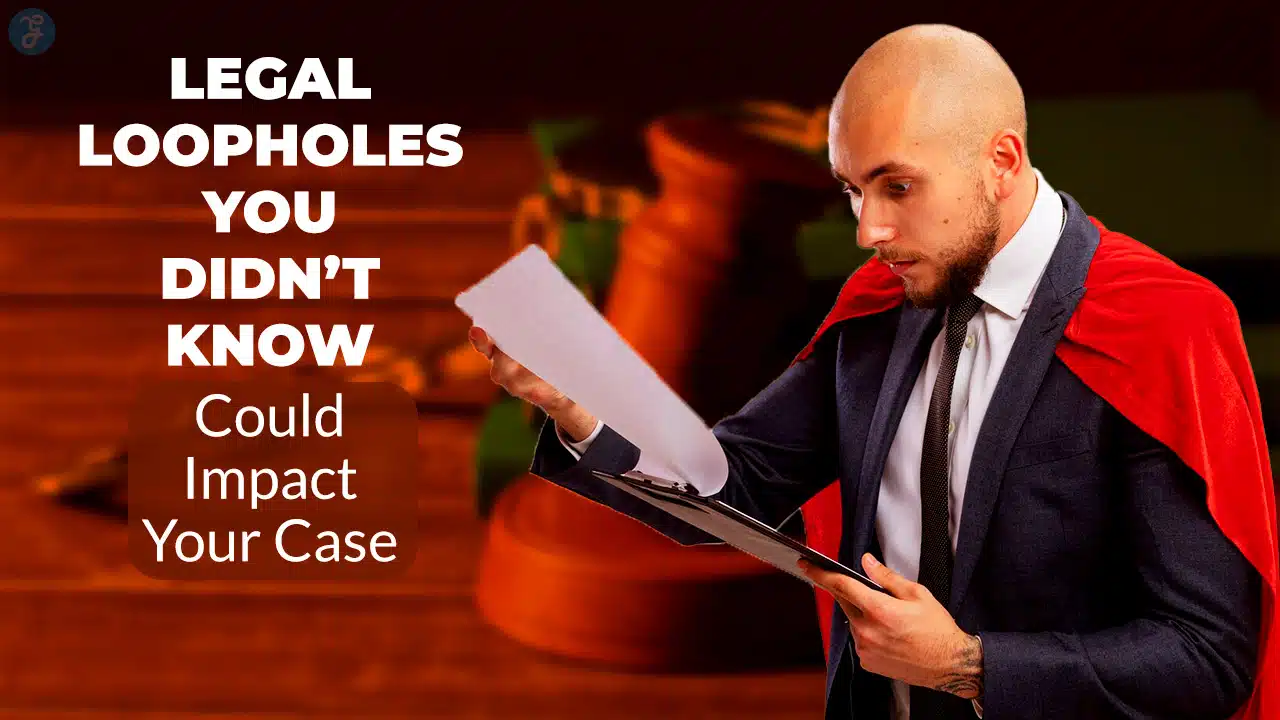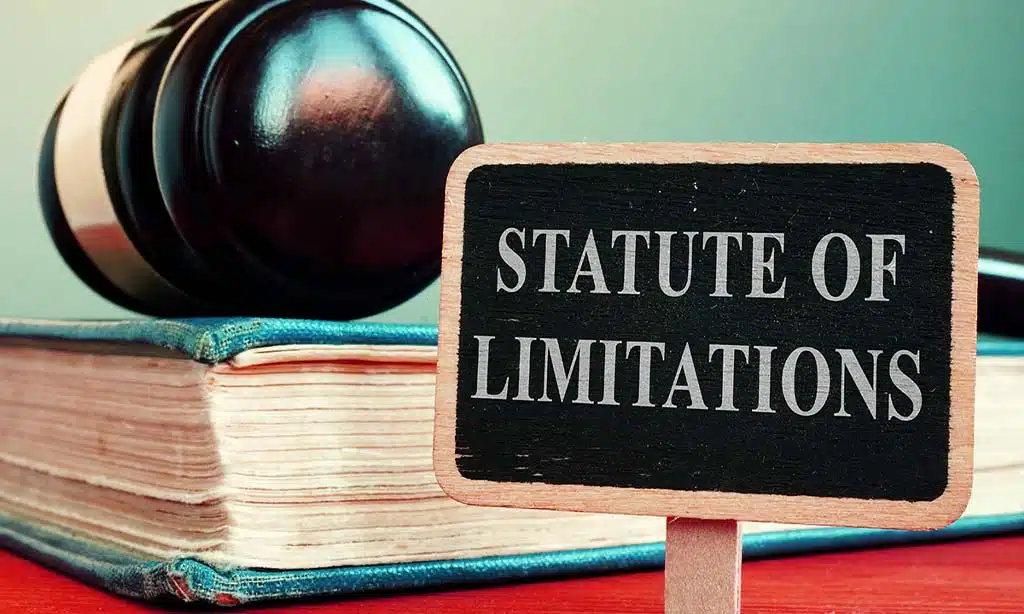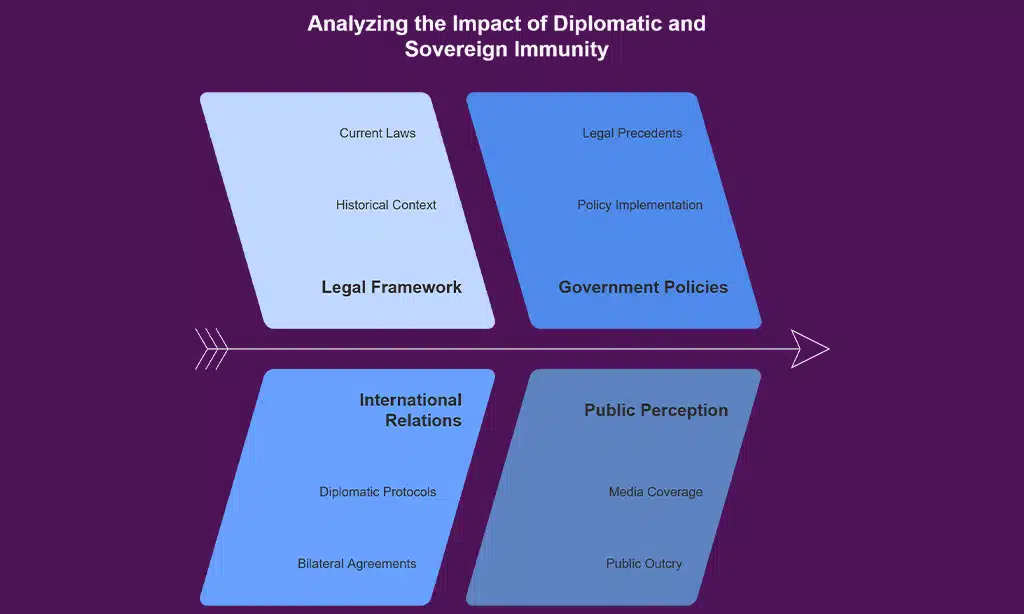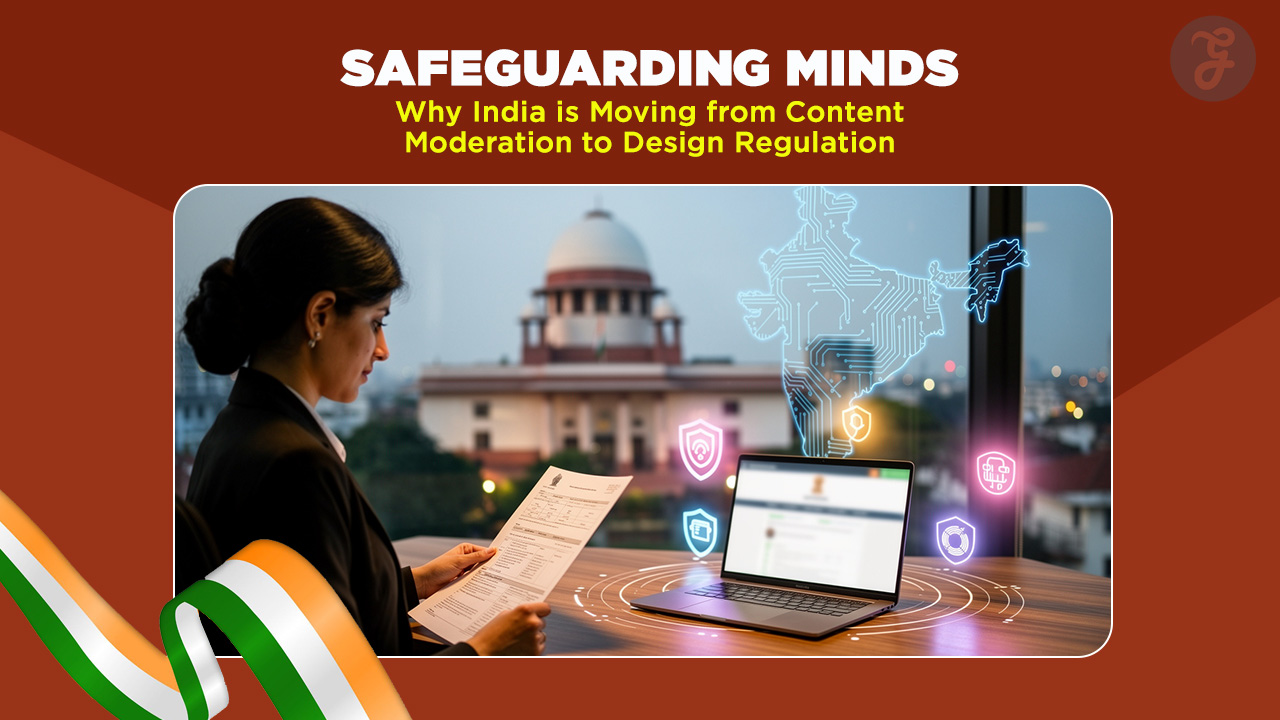When it comes to legal matters, most people assume that laws are rigid and absolute. However, the reality is far from simple. Legal systems around the world contain numerous loopholes—small technicalities that can have a profound impact on the outcome of a case. These loopholes can either work in your favor or against you, depending on the circumstances.
Understanding these Legal Loopholes That Impact Your Case can mean the difference between winning and losing a legal battle. Whether you’re facing criminal charges, a civil lawsuit, or a contractual dispute, being aware of these legal gaps can help you navigate the system more effectively.
This guide delves deep into 10 Legal Loopholes That Impact Your Case, explaining how they work, their real-world applications, and strategies for leveraging them effectively.
1. The Technicality of Improper Evidence Handling
One of the most common Legal Loopholes That Impact Your Case involves the handling of evidence. Proper evidence management is crucial for ensuring fair trials, but errors in its collection, storage, or presentation can create opportunities for legal defenses. Understanding how these mistakes occur can be essential for both prosecutors and defendants.
How Evidence Gets Mishandled
Mishandling of evidence can lead to case dismissals, wrongful convictions, or verdict reversals. Common ways evidence gets mishandled include:
| Error Type | Impact on Case |
| Chain of custody errors | Can make evidence inadmissible |
| Improper storage | Leads to contamination and credibility issues |
| Police procedural mistakes | Could violate constitutional rights |
Case Examples Where This Loophole Helped Defendants
There have been numerous cases where evidence was thrown out due to improper handling, leading to dismissals or acquittals. For example, in drug-related offenses, improperly stored substances have led to cases being overturned.
Real-World Example:
In a high-profile drug case, police officers failed to properly log narcotics into the system, leading to the court ruling the evidence inadmissible. As a result, the defendant’s charges were dropped.
Key Takeaway:
If you believe evidence in your case was mishandled, your attorney can challenge its admissibility, potentially weakening the prosecution’s argument.
2. Statute of Limitations Expiry
Among the Legal Loopholes That Impact Your Case, the statute of limitations can be one of the most crucial. This legal timeframe determines how long a plaintiff or prosecutor has to bring a case against an individual. Once the deadline passes, legal action is no longer valid, making it a powerful defense strategy in many cases. Knowing the time limits for various types of cases can help you avoid unnecessary legal battles and protect your rights.
Understanding Time Limits for Legal Action
The statute of limitations sets a time limit on how long legal action can be pursued. If this period expires, the case can no longer be prosecuted.
| Case Type | Typical Time Limit |
| Personal Injury | 2-5 years |
| Fraud | 3-10 years |
| Property Damage | 3-6 years |
| Murder | No limitation |
Exceptions That Extend or Pause the Limitations Period
- Tolling due to mental incapacity or fraud
- Discovery rule: Some cases (e.g., medical malpractice) allow the statute to begin when the injury is discovered rather than when it occurred.
Real-World Example:
A woman diagnosed with asbestos-related cancer 20 years after exposure successfully sued under the discovery rule, despite the usual statute of limitations expiring long before.
Key Takeaway:
If you are facing a lawsuit or prosecution, check whether the statute of limitations has expired—it could be a game-changer.
3. Double Jeopardy Protection
Among the Legal Loopholes That Impact Your Case, double jeopardy protection is one of the most fundamental rights in the justice system. This principle ensures that individuals are not subjected to repeated prosecutions for the same offense, providing legal security and preventing governmental abuse. However, exceptions exist, and understanding them is crucial to ensuring fair application of this protection.
How Double Jeopardy Prevents Retrial
Under the Fifth Amendment, a person cannot be tried twice for the same crime once they have been acquitted or convicted.
Exceptions to Double Jeopardy
- If new evidence is found, some jurisdictions may allow retrial under specific conditions.
- Separate state and federal charges can sometimes bypass double jeopardy.
| Condition | Can Retrial Occur? |
| Acquittal in state court | Possible in federal court |
| Mistrial due to tampering | Yes |
| New DNA evidence post-acquittal | No |
Key Takeaway:
If you have already been tried for an offense, ensure your lawyer checks if further prosecution is legally valid.
4. The “Fruit of the Poisonous Tree” Doctrine
One of the most critical Legal Loopholes That Impact Your Case revolves around the legality of evidence collection. If law enforcement gathers evidence improperly, that evidence—and any further evidence derived from it—may be deemed inadmissible in court. This principle ensures that constitutional rights are upheld and prevents authorities from benefiting from illegal practices.
Excluding Evidence Obtained Illegally
This doctrine prevents evidence obtained illegally from being used in court.
| How Evidence Was Obtained | Can It Be Used? |
| Illegal search and seizure | No |
| Forced confession | No |
| Good faith reliance on faulty warrant | Yes |
When Illegally Obtained Evidence Can Still Be Used
- Good faith exceptions: If officers acted under a faulty but valid warrant.
- Independent discovery loophole: If evidence is later obtained legally through other means.
Key Takeaway:
If crucial evidence in your case was obtained unlawfully, your lawyer can argue for its exclusion.
5. The Entrapment Defense
One of the most debated Legal Loopholes That Impact Your Case is entrapment. This defense arises when law enforcement officers induce an individual to commit a crime they otherwise would not have committed. While entrapment laws exist to prevent abuse of power, proving entrapment in court can be challenging and requires a thorough examination of the circumstances.
What Qualifies as Entrapment?
If law enforcement induces a crime that a person would not have otherwise committed, entrapment may be a valid defense.
Cases Where Entrapment Led to Dismissals
Many drug and sting operations have been dismissed due to entrapment claims.
Real-World Example:
An undercover agent pressured a suspect for months into buying illegal firearms, leading to the case being dismissed due to entrapment.
Key Takeaway:
If you were coerced into committing a crime, entrapment might be a defense in your case.
6. The Loophole in Plea Bargains
One of the most commonly used Legal Loopholes That Impact Your Case is the plea bargain. Plea deals are agreements between defendants and prosecutors that allow the accused to plead guilty to a lesser charge in exchange for a lighter sentence. While plea bargains can be beneficial in avoiding long trials, they can also be exploited to bypass stricter legal consequences. Understanding how plea bargains work and when they can be challenged is crucial for anyone facing criminal charges.
How Plea Deals Can Be Strategically Used
Many defendants accept plea deals to receive lighter sentences.
When a Plea Bargain Can Be Overturned
- If it was made under coercion.
- If misleading information was given.
| Condition | Can Plea Bargain Be Overturned? |
| Coerced plea agreement | Yes |
| Prosecutor withheld evidence | Yes |
| Voluntary and informed plea | No |
Key Takeaway:
Ensure your plea deal is fair and valid before accepting it.
7. Diplomatic and Sovereign Immunity
Among the Legal Loopholes That Impact Your Case, diplomatic and sovereign immunity stand out as powerful protections that can prevent legal actions against certain individuals. These legal shields were established to maintain smooth international relations and protect government entities from constant litigation. However, they can sometimes be misused, leading to controversial cases where justice is perceived as being obstructed.
How These Legal Shields Work
Certain individuals, such as diplomats and foreign heads of state, enjoy immunity from legal prosecution in many cases. This principle ensures international diplomatic relations remain intact but can sometimes be exploited.
| Who Qualifies? | What It Protects Against? |
| Diplomats | Criminal and civil lawsuits |
| Heads of State | Legal actions in foreign courts |
| Government Agencies | Some forms of liability |
Situations Where Immunity Can Be Revoked
- When a host country officially waives immunity.
- If the individual commits serious crimes such as terrorism or human rights violations.
- In some cases, international courts (such as ICC) may overrule immunity claims.
Real-World Example:
A diplomat accused of manslaughter in a car accident avoided prosecution due to diplomatic immunity, sparking international controversy.
Key Takeaway:
Understanding how diplomatic and sovereign immunity works can help determine whether a case can be pursued.
8. The Alibi Loophole
Among the Legal Loopholes That Impact Your Case, the alibi defense is one of the most effective ways to challenge a prosecution’s claims. If a defendant can prove they were at another location when the crime occurred, their case may be dismissed. However, the strength of an alibi depends on the reliability of the evidence presented, such as witness statements, video footage, or electronic records.
Weaknesses in Prosecution’s Case Due to Alibi Defense
A strong alibi can dismantle the prosecution’s argument. If a defendant can provide solid proof that they were elsewhere when the crime occurred, the case may be dismissed.
| Factor | Strength of Alibi |
| Video footage | Very strong |
| Witness testimony | Moderate |
| Lack of supporting evidence | Weak |
How Fabricated Alibis Have Led to Wrongful Acquittals
While genuine alibis can exonerate the innocent, fabricated alibis have also led to wrongful acquittals.
Real-World Example:
A man accused of robbery used falsified phone location data to prove he was elsewhere, later leading to an overturned acquittal when the fraud was discovered.
Key Takeaway:
An alibi can be a powerful defense, but it must be credible and backed by solid evidence.
9. Contractual and Fine Print Loopholes
Among the Legal Loopholes That Impact Your Case, contractual loopholes and fine print often go unnoticed until they create serious legal complications. Many agreements contain hidden clauses that may limit your rights, impose unexpected obligations, or make disputes harder to resolve. Understanding these loopholes can help you identify unfair contract terms and protect yourself from potential exploitation.
How Legal Language Can Void Agreements
Contracts often contain clauses that individuals overlook, leading to unexpected outcomes. Certain loopholes allow for voiding contracts based on:
| Clause Type | Potential Issue |
| Unconscionable terms | Courts may void the contract |
| Hidden arbitration clauses | Prevents lawsuits |
| Fraudulent misrepresentation | Contract may be canceled |
Ways to Protect Yourself from Fine Print Traps
- Read every clause carefully.
- Consult a legal expert before signing.
- Look for hidden dispute resolution clauses.
Real-World Example:
A consumer unknowingly signed a contract that waived their right to sue a company for defective products, highlighting the need for awareness of legal fine print.
Key Takeaway:
Always review contracts thoroughly to avoid hidden loopholes that may affect your rights.
10. Bankruptcy as a Legal Shield
Among the Legal Loopholes That Impact Your Case, bankruptcy laws provide one of the most significant shields against financial liabilities. By declaring bankruptcy, individuals and businesses can eliminate or restructure their debts, often avoiding serious legal consequences. However, this legal tool is frequently misused, leading to fraudulent claims and financial misconduct.
How Bankruptcy Can Discharge Legal Liabilities
Bankruptcy allows individuals and businesses to discharge certain debts, providing financial relief but also presenting legal loopholes.
| Type of Debt | Can It Be Discharged? |
| Credit card debt | Yes |
| Student loans | Rarely |
| Child support | No |
Legal Consequences of Abuse of Bankruptcy Laws
- Filing bankruptcy fraudulently can lead to severe penalties.
- Some debts, like taxes and criminal fines, cannot be erased.
- Courts can revoke bankruptcy protection if abuse is proven.
Real-World Example:
A business owner transferred assets to family members before declaring bankruptcy, later facing fraud charges for attempting to shield assets from creditors.
Key Takeaway:
Bankruptcy is a legal tool but should be used ethically to avoid legal repercussions.
Takeaways
Legal loopholes can significantly impact the outcome of a case. Whether these loopholes work in your favor or against you, understanding them is crucial. By being aware of the Legal Loopholes That Impact Your Case, you can better navigate the legal system and protect your rights.
If you are involved in any legal matter, consult an experienced attorney to ensure you fully understand any potential legal loopholes that may affect your case.








































